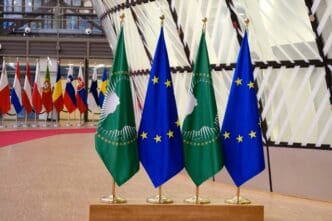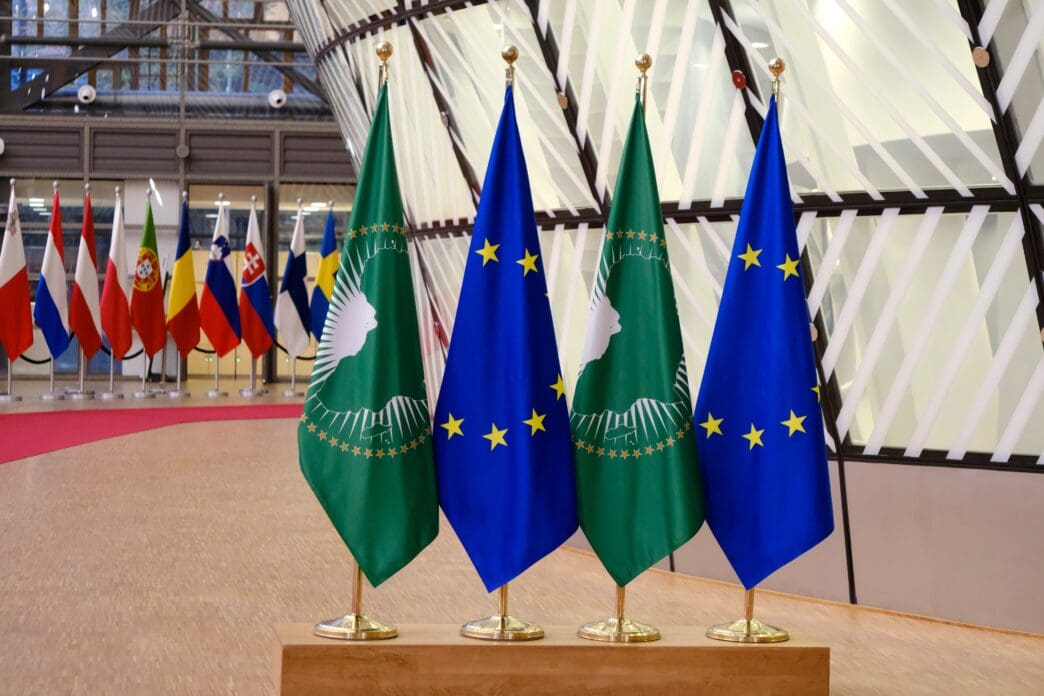Executive Summary
The Story So Far
Why This Matters
Who Thinks What?
Senior representatives from the African Union (AU), European Union (EU), and United Nations (UN) convened their Sixth Trilateral Meeting on September 21, 2025, at the UN Headquarters in New York. The gathering, held on the margins of the 80th Session of the United Nations General Assembly, saw the Chairperson of the African Union Commission, Mahmoud Ali Youssouf; the President of the European Council, António Costa; the President of the European Commission, Ursula von der Leyen; and the Secretary-General of the United Nations, António Guterres, reiterate their commitment to multilateralism and discuss pressing global and regional challenges, particularly focusing on peace and development in Africa.
Commitment to Multilateralism and International Law
The three organizations collectively reaffirmed their unwavering support for multilateralism, identifying it as the most effective framework for addressing contemporary global challenges. They expressed strong condemnation for the escalating disregard for international humanitarian law and human rights law observed in various conflicts worldwide.
Addressing Peace and Security in Africa
A significant portion of the discussions centered on ongoing peace efforts across the African continent. The leaders highlighted the urgent need to end the devastating conflict in Sudan, committing to intensified collective support and coordination towards an inclusive political dialogue, an immediate cessation of hostilities, and a sustainable resolution.
Regional Peace Initiatives
In the Sahel region, the organizations discussed strategies to bolster the fight against terrorist armed groups and foster reconciliation and development. For Libya, they affirmed their support for the United Nations roadmap aimed at reviving the political process and reiterated their dedication to managing migration in accordance with international humanitarian and human rights standards, notably through the African Union-European Union-United Nations Tripartite Task Force on the Situation of Migrants and Refugees.
Support was also extended to ongoing international and regional peace initiatives in the eastern Democratic Republic of the Congo, aligning with the communiqué from the African Union Peace and Security Council’s 1261st meeting and United Nations Security Council resolution 2773 (2025). Furthermore, they reaffirmed their backing for the African Union Support and Stabilization Mission in Somalia, urging sustained and broadened donor contributions to ensure its effective mandate delivery.
Financing Peace Operations
The trilateral meeting included an exchange of views on the ongoing reviews of peace operations, aimed at more efficiently addressing emerging challenges in Africa and beyond. Participants welcomed efforts and called for further progress regarding the operationalization of Security Council resolution 2719 (2023), which focuses on predictable financing for AU-led peace support operations on a case-by-case basis.
Sustainable Development and Global Partnerships
The organizations collectively reaffirmed their commitment to advancing durable peace and sustainable development in Africa, in line with the African Union Agenda 2063 and the United Nations 2030 Agenda for Sustainable Development. They recognized the deepening partnership between Africa and Europe, guided by their Joint Vision for 2030, and looked forward to the upcoming African Union-European Union Summit scheduled for November 2025 in Luanda, Angola.
Addressing Global Challenges
Discussions also encompassed broader global challenges, including the importance of implementing the Sevilla Commitment to facilitate financing for development, catalyze investments, and address the debt challenges faced by developing countries. They expressed profound concern over climate-induced disruptions intensifying globally, disproportionately affecting vulnerable populations, and called for ambitious commitments at COP30, scheduled from November 10 to 21, 2025, in Brazil.
Additionally, the leaders commemorated the 25th anniversary of Security Council resolution 1325 (2000) on women, peace and security, committing to accelerating women’s leadership and ensuring their full, equal, and meaningful participation in peacebuilding processes.
Continued Cooperation
The Sixth Trilateral Meeting underscored the continued collaboration between the African Union, European Union, and United Nations on critical global and regional issues. The organizations agreed to reconvene in 2026, on the margins of the 81st Session of the United Nations General Assembly, to continue their joint efforts.








